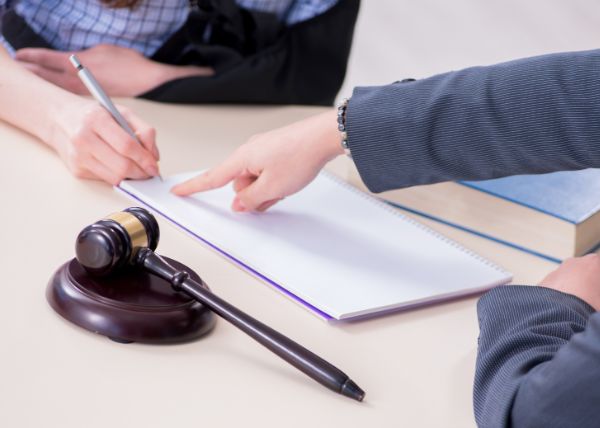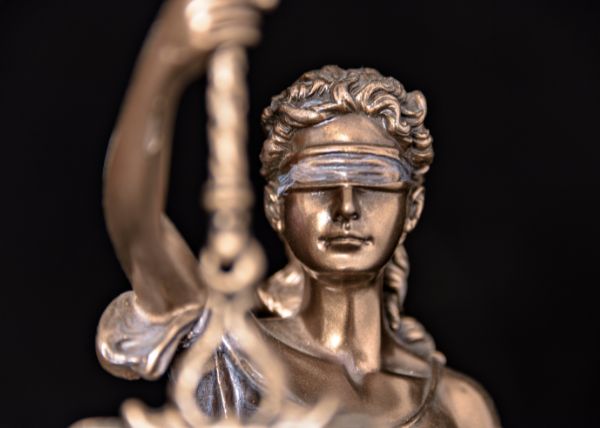
Call Now For A Free Consultation:

Call Now For A Free Consultation:

Have you ever felt that your civil rights have been violated by the police? You have the right to take legal action and seek justice for any unlawful actions taken against you. If you're unsure about how to go about suing the police for violating your civil rights, Justin Palmer Law Group is here to help you navigate the legal process efficiently and effectively.
Civil rights violations occur when an individual’s fundamental rights and freedoms, as protected by the Constitution and federal laws, are infringed upon by those in authority, including law enforcement officers. These rights are designed to ensure that every person is treated with dignity, fairness, and equality under the law. Understanding these violations is crucial in recognizing when your rights have been breached and knowing the appropriate steps to take.
Certain characteristics are protected under civil rights laws to prevent discrimination and ensure equal treatment for all individuals. These protected characteristics include race, color, national origin, religion, sex, age, disability, and sexual orientation. If you believe that your civil rights were violated by the police based on any of these characteristics, you may have a valid claim for legal action.
For example, if you were targeted and treated unfairly by the police because of your race or religion, this could be considered a civil rights violation. Similarly, if you were subjected to excessive force or brutality due to your disability or sexual orientation, this would also be grounds for a lawsuit.
Civil rights violations by police can take many forms, including but not limited to:
Recognizing when a civil rights violation has occurred can be challenging. Signs that you may have experienced a violation include:
Understanding your civil rights and recognizing when they have been violated is the first step in seeking justice. If you believe your rights have been infringed upon by law enforcement, it is essential to take immediate action to protect your legal interests and hold the responsible parties accountable.
Suing the police for violating your civil rights is a complex and demanding process that requires careful preparation, strong evidence, and a deep understanding of both federal and state legal procedures. Here’s a step-by-step guide on how to pursue a civil rights lawsuit against law enforcement officers or departments.
Suing the police for civil rights violations is a challenging process that demands expertise and dedication. At Justin Palmer Law Group, we are committed to fighting for justice on behalf of those whose rights have been violated by law enforcement. If you believe you have been a victim of police misconduct, contact us today for a consultation. We will work tirelessly to protect your rights and hold the responsible parties accountable.

At Justin Palmer Law Group, we understand the immense challenges and emotional turmoil that come with experiencing a civil rights violation. Our commitment is to stand by you, offering expert legal guidance and unwavering support throughout the entire legal process. Here’s how we can help:
Navigating the complexities of civil rights law requires specialized knowledge and experience. Justin Palmer, with his extensive background in civil rights cases, will provide you with clear, comprehensive advice tailored to your unique situation. From the moment you consult with us, you will gain a clear understanding of your legal rights and the steps involved in pursuing justice.
A successful civil rights lawsuit begins with a thorough and detailed evaluation of your case. We meticulously review all aspects of your experience, gathering critical evidence, identifying potential witnesses, and assessing the strength of your claims. This rigorous approach ensures that no detail is overlooked and that your case is built on a solid foundation.
Evidence is the cornerstone of any civil rights case. Our team at Justin Palmer Law Group is adept at collecting and preserving crucial evidence, whether it’s video footage, medical records, or eyewitness testimonies. We work diligently to ensure that all pertinent information is documented and secured, bolstering the credibility and strength of your case.
The process of filing complaints and legal documents can be daunting and complex. We handle all aspects of this process on your behalf, from submitting internal complaints to the police department to filing the necessary legal claims in court. Our attention to detail and adherence to legal protocols ensures that your case proceeds smoothly and efficiently.
Whether through negotiation or trial, our goal is to achieve the best possible outcome for you. We represent you in all negotiations, striving to reach a fair settlement that adequately compensates you for the harm you’ve suffered. If your case goes to trial, Justin Palmer’s litigation skills and courtroom experience become invaluable assets, presenting a compelling and persuasive case to the judge and jury.
At every stage of your case, our priority is to protect your rights and interests. We act as your advocate, ensuring that you are treated fairly and with respect throughout the legal process. Our commitment to justice drives us to fight tirelessly on your behalf, holding those responsible for civil rights violations accountable for their actions.
Dealing with a civil rights violation can be emotionally draining. We offer more than just legal support; we provide compassionate guidance and emotional support to help you through this difficult time. Our team is here to listen, understand, and support you every step of the way.
Civil rights violations can result in significant emotional, physical, and financial harm. We work diligently to secure fair compensation for your losses, including damages for pain and suffering, medical expenses, lost wages, and any other relevant impacts on your life. Our aim is to ensure that you receive the justice and restitution you deserve.
At Justin Palmer Law Group, we are dedicated to upholding justice and defending the rights of those who have been wronged by law enforcement. If you have experienced a violation of your civil rights, don’t face it alone. Contact us today for a consultation, and let us provide the expert legal support you need to reclaim your rights and dignity. Together, we will fight for justice and hold those responsible accountable.
If you have experienced a violation of your civil rights, you may be entitled to various forms of compensation for the harm you have endured. At Justin Palmer Law Group, we strive to ensure that you receive full and fair compensation for the damages you have suffered. Here are some of the key types of damages you may recover in a civil rights lawsuit:
In cases where the conduct of the police officers or other government officials was particularly egregious or malicious, the court may award punitive damages. These damages are intended to punish the wrongdoers and deter similar conduct in the future. Punitive damages are typically awarded in addition to compensatory damages.
Civil rights violations can lead to significant emotional and psychological harm. Compensation for emotional distress covers the mental anguish and suffering you have endured, including conditions such as PTSD, anxiety, depression, and other mental health issues that result from the violation.
This category of damages compensates for the negative impact on your quality of life. If the violation has affected your ability to enjoy activities and hobbies you previously took part in, you may be entitled to compensation for this loss.
Under certain civil rights statutes, you may be entitled to recover the costs of legal representation. This means that the defendant may be required to pay your attorney’s fees and other legal expenses, ensuring that you are not financially burdened by the cost of seeking justice.
In some cases, the court may issue orders to prevent further violations of your rights. This could include reforms within the police department, training programs, or other measures designed to protect the public and prevent future misconduct.
The damages you can recover from a civil rights violation are intended to make you whole and provide justice for the wrongs you have suffered. At Justin Palmer Law Group, we are dedicated to securing the maximum compensation for our clients.
If you have been the victim of a civil rights violation by law enforcement, it is crucial to seek legal representation as soon as possible. At Justin Palmer Law Group, we are committed to fighting for justice on behalf of those who have been wronged by police misconduct. Contact us today to schedule a free consultation and discuss your case. Don't wait – take action now to hold those responsible for their actions and seek the justice you deserve.
Attorney Advertising | Prior results do not guarantee a similar outcome. The information on this website is for general information purposes only. Nothing on this site should be taken as legal advice for any individual case or situation. This information is not intended to create, and receipt or viewing does not constitute, an attorney-client relationship. This site is protected by reCAPTCHA and the Google Privacy Policy and Terms of Service apply.